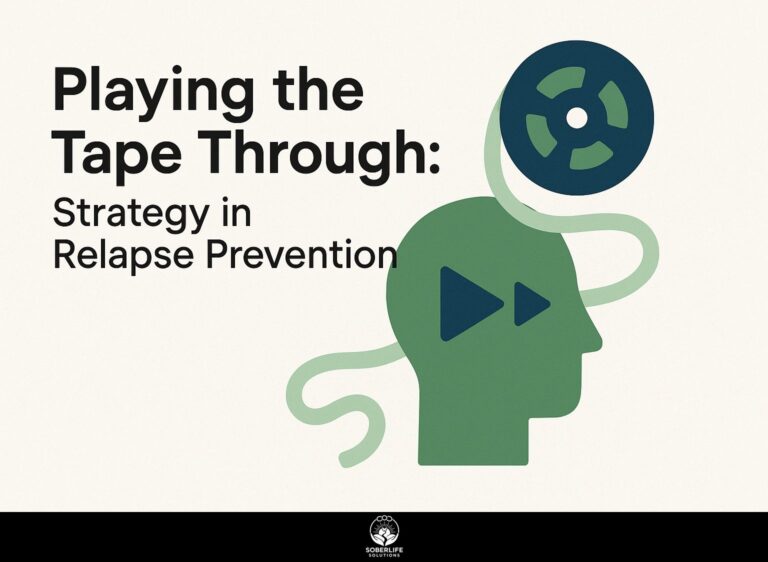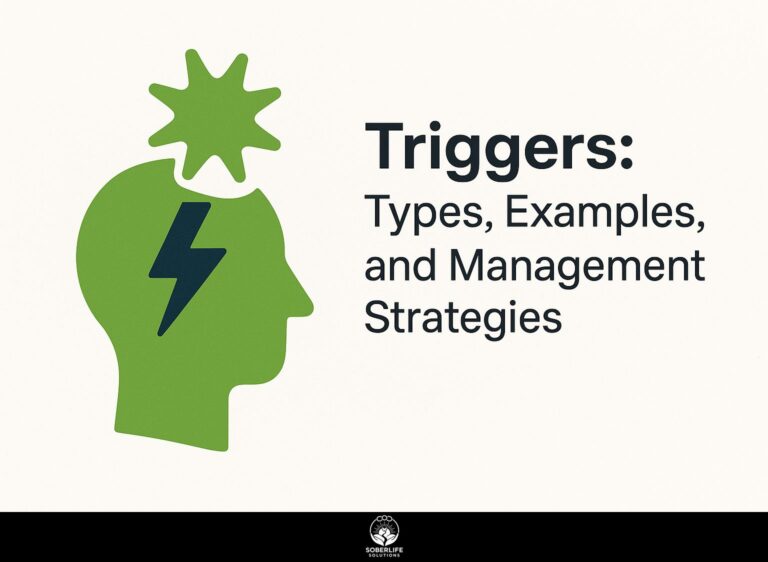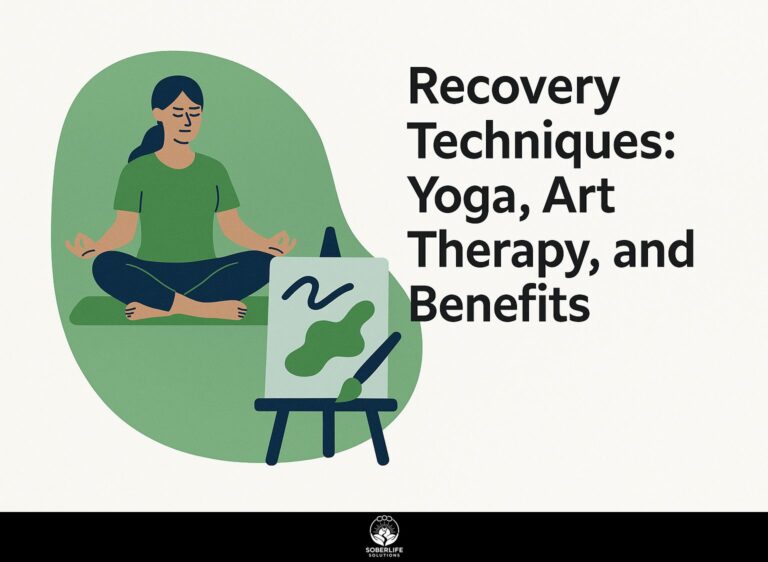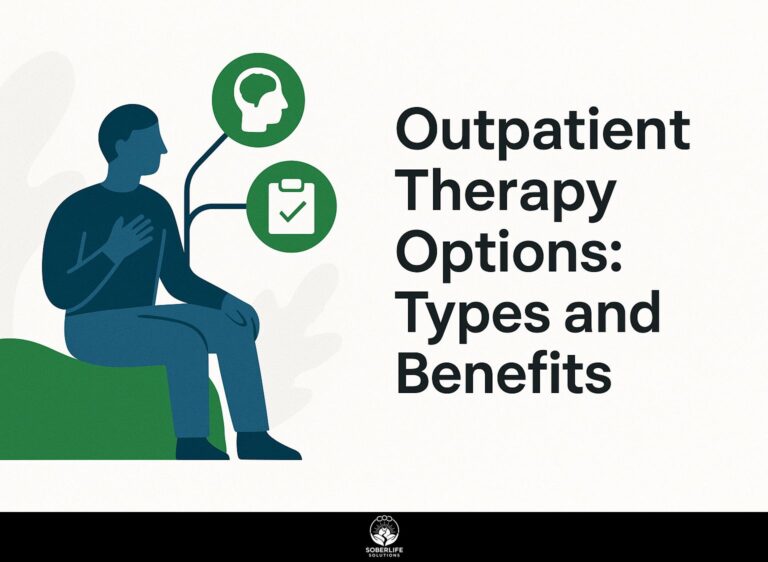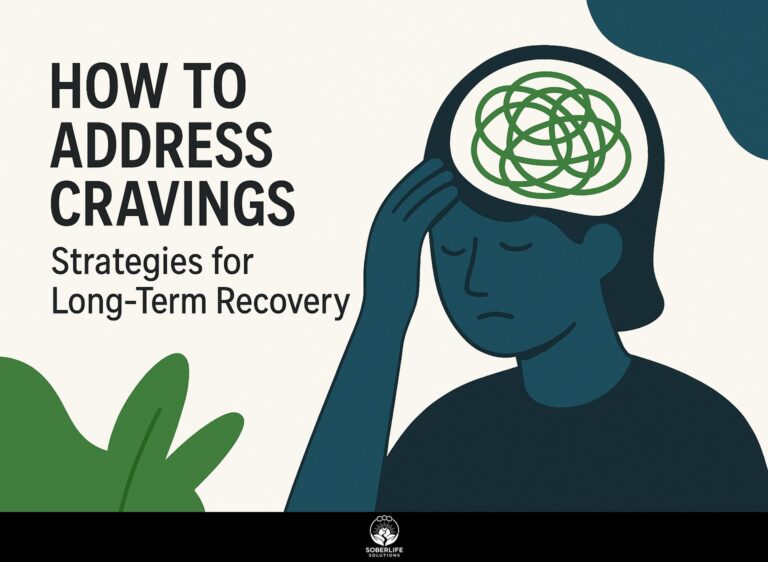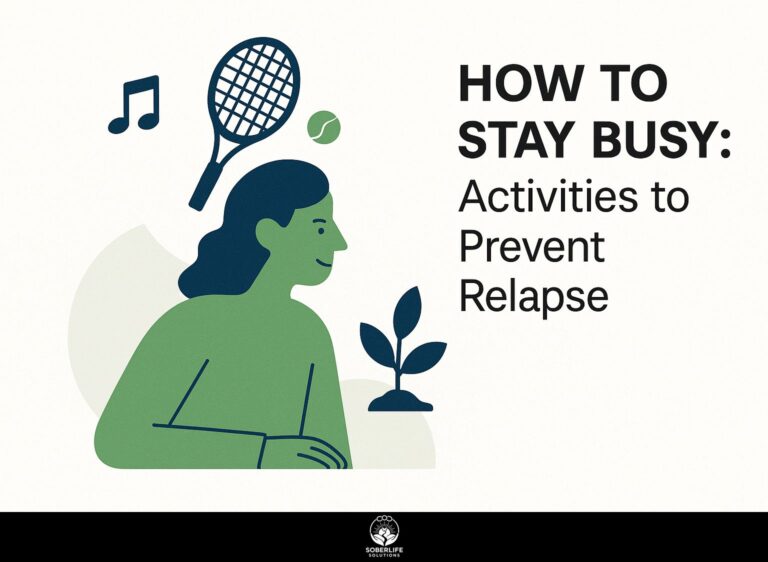Psychologists: Techniques and Importance in Recovery
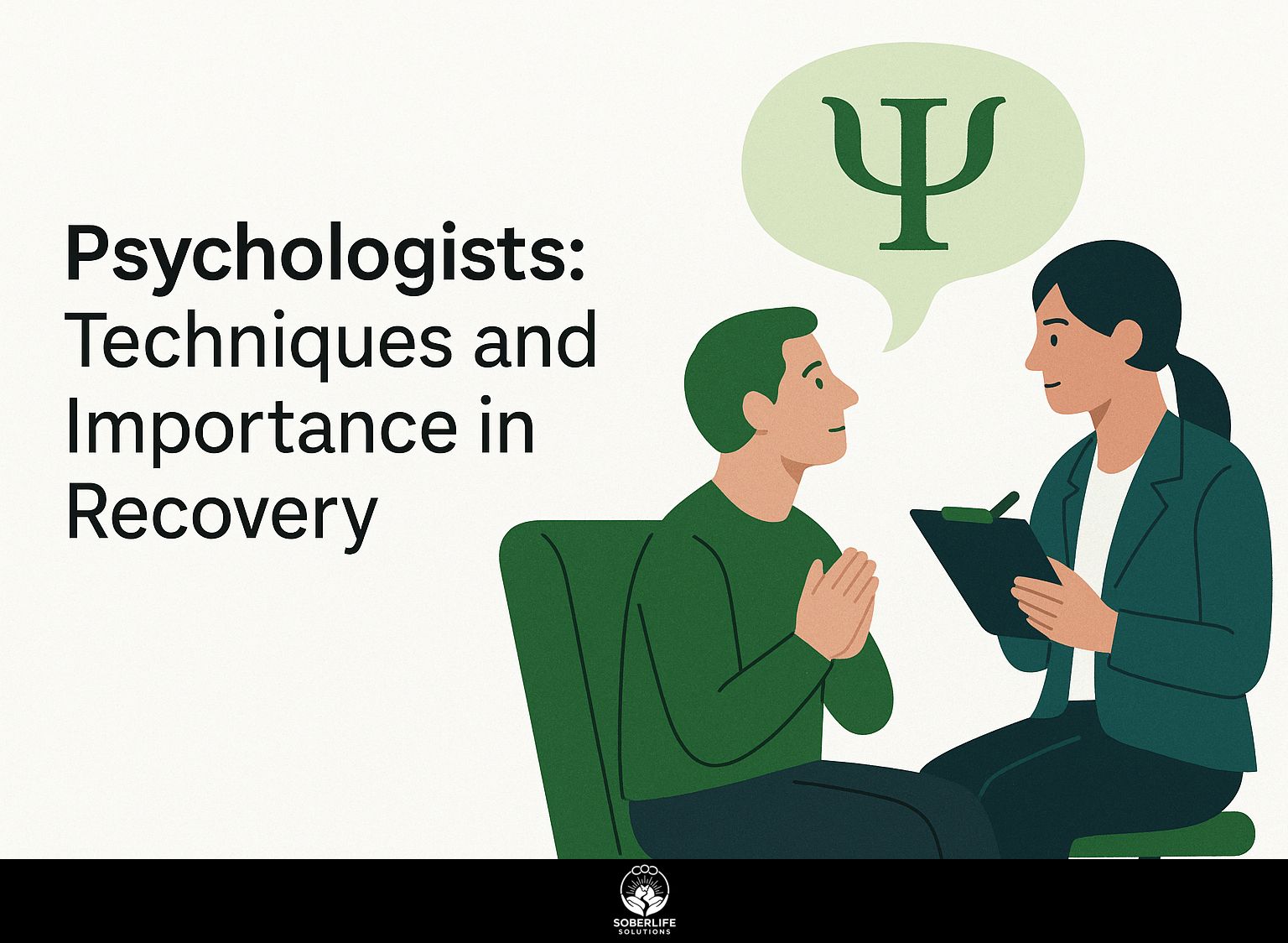
Overcoming addiction often means dealing with a strong urge that can harm mental well-being. Knowing the mental factors involved is important, and psychologists help with this. By using methods such as Cognitive Behavioral Therapy, they help people recover. This article looks at the role of psychological support in healing, the methods used by experts, and how they can change someone’s path to mental health.
Key Takeaways:
Definition and Scope
Psychological recovery is defined as a process involving the restoration of mental health and emotional well-being through structured treatment and personal development.
This process is essential, particularly for those healing from addiction or managing mental health challenges.
Structured treatment methods like Cognitive Behavioral Therapy (CBT) help participants identify and modify negative thought patterns, promoting healthier behaviors. This aligns with findings from the American Psychological Association, which describes CBT as an effective approach for a variety of mental health issues.
Mindfulness practices such as meditation encourage present-moment awareness, reducing anxiety and enhancing emotional regulation.
Using these methods helps people become stronger, enabling them to purposefully and clearly reconstruct their lives. Together, they make a complete recovery plan that helps both mental and emotional health.
Importance of Mental Health
Mental health significantly impacts overall well-being, influencing emotional regulation, life satisfaction, and the ability to cope with stress.
Research indicates that one in five adults experience mental health issues at some point in their lives, highlighting an urgent need for support. To better understand the scope, the National Alliance on Mental Illness provides insightful data on mental health statistics.
Prioritizing mental health in recovery involves incorporating practices such as mindfulness, therapy, and physical activity. For example, cognitive-behavioral therapy (CBT) can help people change negative thought patterns, and regular exercise can reduce anxiety and signs of depression. Additionally, specific mindfulness techniques can be particularly beneficial for those recovering from alcoholism through innovative strategies.
Joining support groups can help create a sense of belonging, essential for emotional strength. Together, these strategies form a complete method for recovery, improving overall mental health.
Role of Psychologists in Recovery
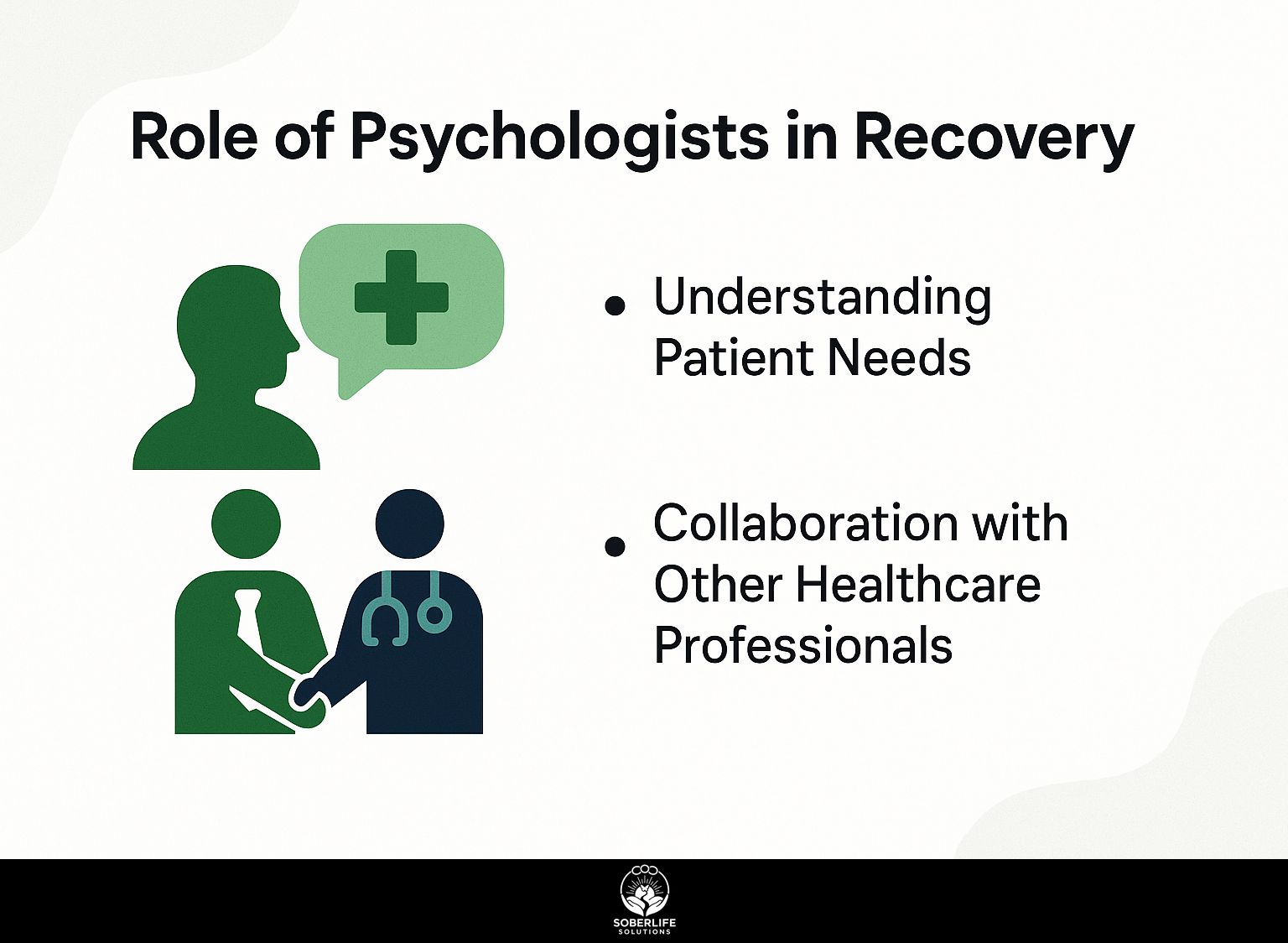
Psychologists are important in helping people recover by recognizing what patients need and working together with other healthcare workers. Understanding the role of detox centers, as outlined in this hidden gem on the role of detox centers in recovery, can further enhance the collaboration between psychologists and other healthcare professionals, ensuring comprehensive care.
Understanding Patient Needs
Figuring out what patients need involves thorough evaluations, such as mental health assessments and finding any other disorders that occur at the same time.
Psychologists typically employ a combination of standardized assessments and clinical interviews to gauge a patient’s mental health.
Tools like the DSM-5 help diagnose conditions by listing criteria for different disorders. Structured interviews, like the SCID-5, offer a clear approach to examine symptoms and history in detail. According to Verywell Health, the DSM-5 is a critical tool that provides a comprehensive overview of various mental health disorders, aiding professionals in accurate diagnosis.
During initial sessions, psychologists may also use self-report questionnaires, such as the Beck Depression Inventory, to quantify patient experiences. This thorough method gives a clear view of each person’s unique situation.
Collaboration with Other Healthcare Professionals
Working together, psychologists and other healthcare workers improve treatment plans and provide thorough care.
This approach from different fields allows for customized actions that focus on both mental and physical health.
For example, when treating a patient with a dual diagnosis of depression and substance use disorder, psychologists can work closely with addiction specialists to coordinate therapy sessions that focus on coping strategies.
Working with psychiatrists allows us to combine medication management with therapy, giving a complete view of the patient’s condition (our guide to detox center management explores further aspects of medication processes).
Working together improves patient results and creates a smoother treatment process, which leads to higher participation and recovery rates.
Techniques Used by Psychologists
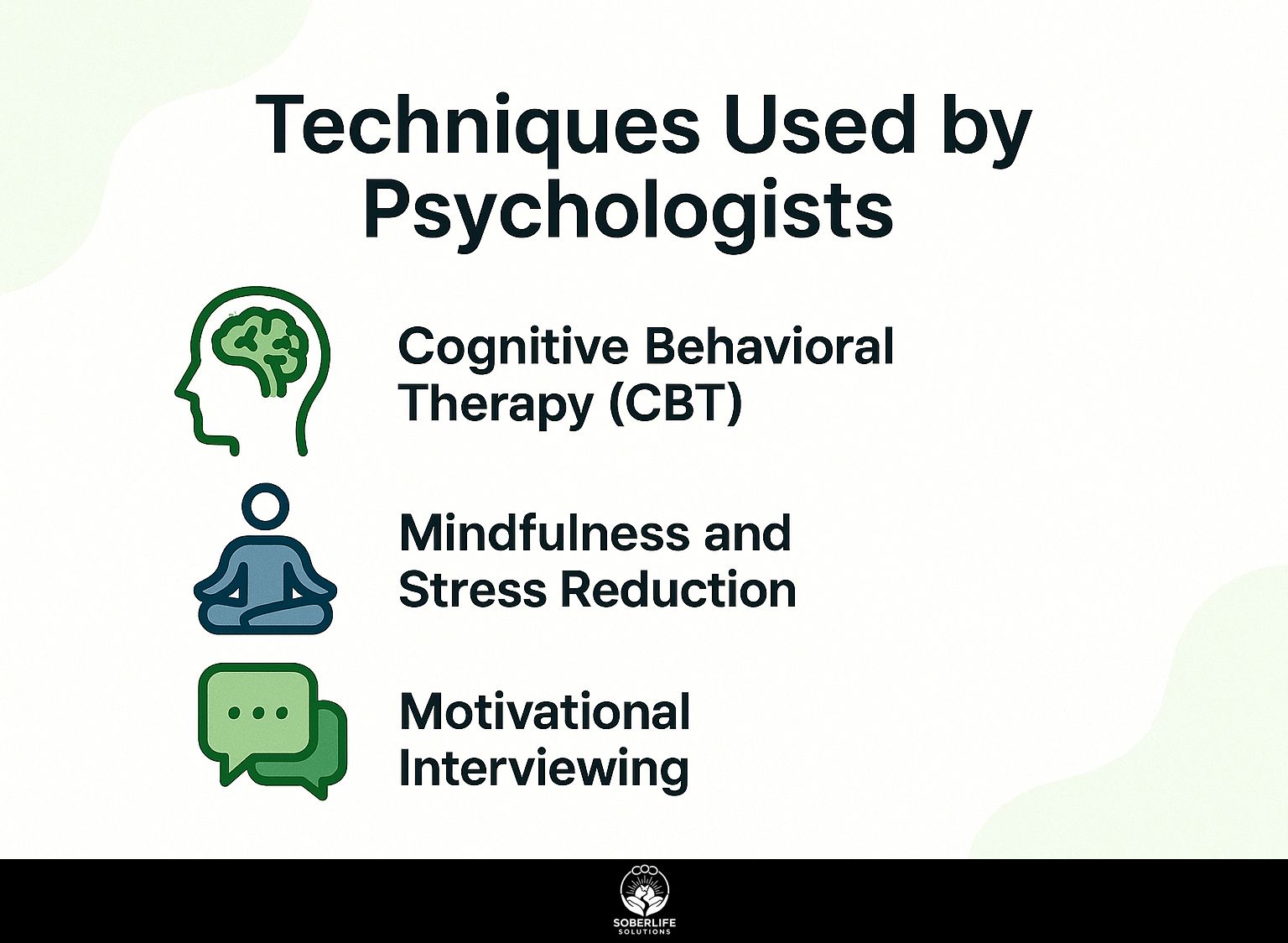
Psychologists use various methods like Cognitive Behavioral Therapy (CBT), mindfulness exercises, and Motivational Interviewing to help people heal. Curious about the effectiveness of CBT in specific groups? Our analysis explains how it works for veterans.
Cognitive Behavioral Therapy (CBT)
Cognitive Behavioral Therapy (CBT) is an evidence-based approach aimed at altering negative thought patterns that contribute to psychological distress.
CBT uses methods such as cognitive restructuring, which helps people find and question incorrect thoughts, and behavioral activation, which promotes participation in enjoyable activities.
For example, a person dealing with anxiety might keep a journal to identify what causes their anxiety and change negative thoughts into more reasonable ones.
Research indicates an impressive 80% improvement rate in anxiety disorders after completing CBT, highlighting its effectiveness.
Using tools like the Mood Tracker app can increase self-awareness and support therapy by making it easier to identify patterns over time.
Mindfulness and Stress Reduction
Mindfulness practices promote emotional regulation and help individuals manage stress effectively, contributing significantly to psychological recovery.
Two popular mindfulness techniques are meditation and breathing exercises.
For meditation, apps like Headspace provide sessions with instructions that last anywhere from 3 to 30 minutes, simplifying the process for those new to meditation.
Breathing exercises can be as simple as the 4-7-8 technique: inhale for 4 counts, hold for 7, and exhale for 8.
Doing these exercises every day for just 10 minutes can significantly improve emotional balance and reduce anxiety over time, aiding mental health.
Motivational Interviewing
Motivational Interviewing is a method focused on the client, aimed at increasing motivation for change by discussing and addressing mixed feelings about recovery.
In addiction recovery settings, Motivational Interviewing (MI) can be applied through techniques such as open-ended questions, affirmations, reflective listening, and summarizing.
For example, a counselor might ask, “What worries do you have about how you’re currently using substances?” This helps clients express their thoughts and problems, leading them to understand themselves better.
Studies, including one published in the Journal of Substance Abuse Treatment, have shown that MI significantly improves treatment adherence, leading to better long-term outcomes.
Using MI helps clients and builds stronger therapy connections.
Measuring the Effectiveness of Psychological Techniques
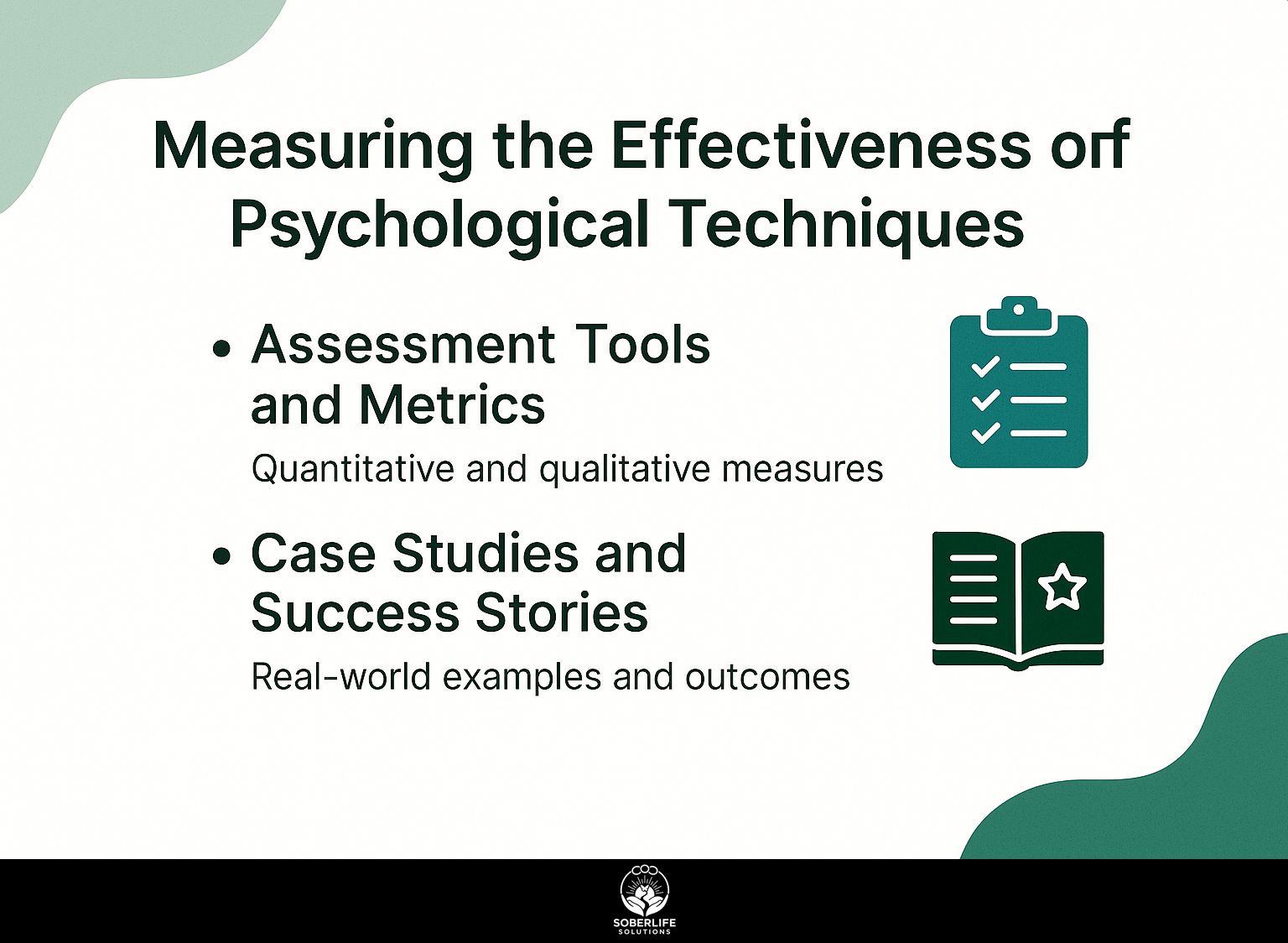
Evaluating how well psychological methods work is important for improving treatment results and making sure recovery methods get better over time.
Assessment Tools and Metrics
Common assessment tools include the Beck Depression Inventory and the Generalized Anxiety Disorder 7-item scale, which help gauge psychological well-being.
These tools provide quantifiable data on a patient’s mental state, allowing therapists to track progress over time.
For instance, results from the Beck Depression Inventory may show a decrease in scores after starting a new treatment plan, indicating improvement.
This data is important in customizing treatment plans; if the scores level off or get worse, changes in therapy methods or medication might be needed.
Doctors regularly use these measures to create a treatment setting that focuses on what patients need.
Case Studies and Success Stories
Real-world case studies illustrate the success of psychological techniques in promoting recovery and improving mental health outcomes.
For instance, a study by Miller et al. (2019) used cognitive-behavioral therapy (CBT) with clients dealing with intense anxiety. Results showed a 60% improvement in anxiety levels after 12 sessions.
Another case involved a community initiative using mindfulness practices which led to a 30% reduction in depressive symptoms among participants over eight weeks.
A program that uses art therapy along with regular counseling showed important improvements in emotional expression, leading to better ways of handling trauma for survivors.
These examples demonstrate the potent effects of targeted psychological strategies in various settings.
Challenges in Psychological Recovery
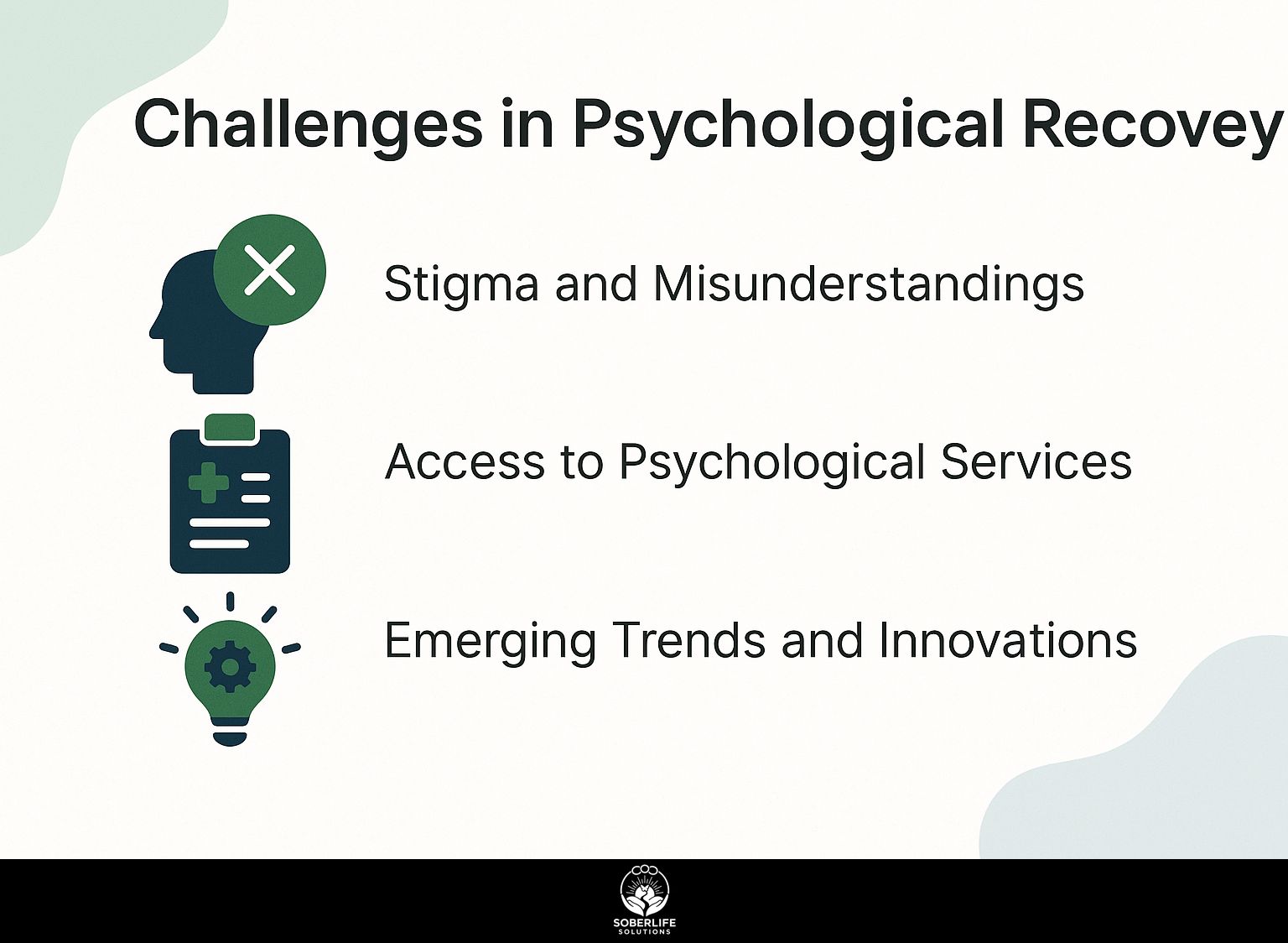
Even with progress in psychological recovery, many obstacles still prevent people from getting good treatment.
Stigma and Misunderstandings
Negative views about mental health often cause confusion, stopping people from getting the psychological help they need.
This stigma results in approximately 33% of individuals with mental health conditions avoiding treatment due to fear of judgment.
Studies show that those who perceive high stigma are less likely to adhere to treatment plans, with a treatment adherence rate dropping to around 50%. Recovery outcomes worsen with prolonged avoidance of care.
To address this, communities can run awareness campaigns that emphasize mental health is just as important as physical health. These efforts should create spaces where asking for help is seen as normal instead of something to be ashamed of.
Efforts should focus on sharing personal stories and emphasizing the effectiveness of treatments.
Access to Psychological Services
Barriers to access psychological services can include financial constraints, lack of available providers, and geographical limitations.
These barriers significantly impact recovery rates. Research indicates that people without insurance are 70% less likely to get help.
To mitigate this, communities can introduce sliding scale payment models and telehealth options. Mental health apps like BetterHelp and Talkspace also offer affordable sessions, while local governments can incentivize providers to extend their reach into underserved areas.
Holding community workshops can increase knowledge about available services, creating a more helpful environment for those who need support.
Emerging Trends and Innovations
New approaches like teletherapy, mobile health apps, and integrated care methods are changing the field of psychological recovery.
Teletherapy platforms like BetterHelp and Talkspace have significantly increased access to mental health professionals, allowing patients to receive care from the comfort of their homes.
Meanwhile, mobile health apps such as Moodfit and Sanvello offer mood tracking and cognitive behavioral therapy exercises on-the-go.
Integrated care models, where mental health services are embedded within primary care settings, have been successfully implemented in hospitals like Mount Sinai, enhancing communication between providers and leading to better outcomes for patients. This approach aligns with the principles outlined in our analysis of patient engagement models that enhance quality of life in recovery.
New technologies and methods are making mental health care easier to get and more effective.
Frequently Asked Questions
What is the role of psychologists in the recovery process?
Psychologists are very important in helping people recover by offering therapy and counseling to those with mental health problems. They use different methods to help their clients learn about and manage their feelings and actions, helping them get better.
What are some common techniques used by psychologists in recovery?
Psychologists use different methods in recovery, including cognitive-behavioral therapy, mindfulness-based therapy, and psychodynamic therapy. Each method is customized for the person’s unique needs and supports them in dealing with their mental health issues.
How does therapy with a psychologist benefit individuals in recovery?
Seeing a psychologist can help people in recovery by developing better ways to handle stress, becoming more aware of themselves, and encouraging positive changes in behavior. It also provides a safe and non-judgmental space for individuals to express their thoughts and emotions.
Why is it important to get help from a psychologist when recovering?
Getting support from a psychologist during recovery can significantly increase a person’s chances of success. Psychologists are trained professionals who provide help and effective methods to support people with the difficulties of recovery.
Can psychologists help with substance abuse recovery?
Yes, psychologists can be important in helping people recover from substance abuse. They can help individuals learn about the root causes of their addiction, find ways to handle challenges, and make a plan to avoid relapse and stay sober in the long run.
What are some signs that it may be time to get help from a psychologist during recovery?
If you find it hard to control your feelings, actions, or thoughts, consider getting support from a psychologist. Other signs might be trouble handling everyday tasks, ongoing feelings of sadness or despair, and not having help from friends and family.

